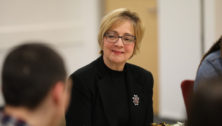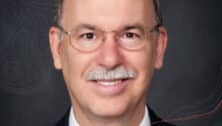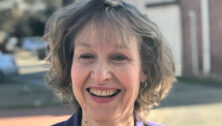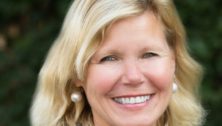Chester County Leadership: Bev Weinberg, Founder and Executive Director at Integrate for Good
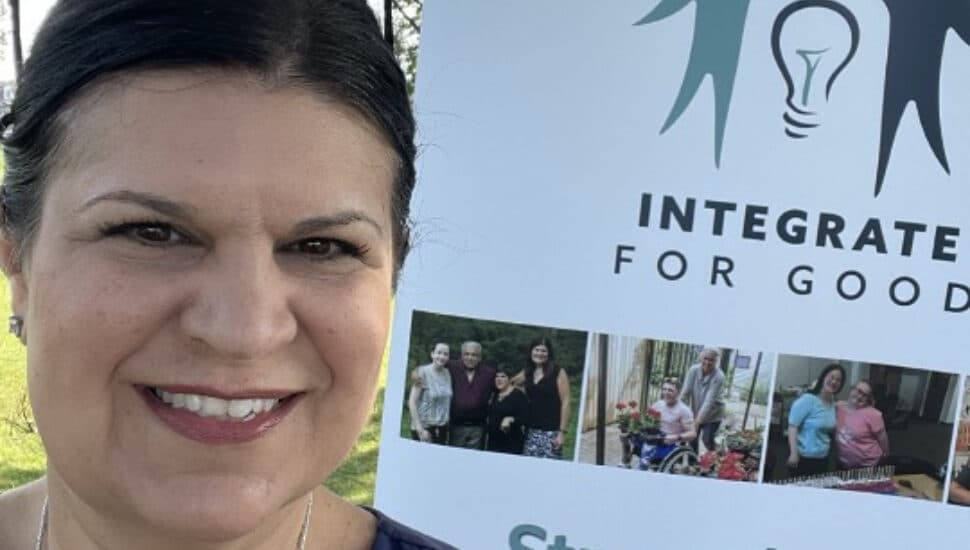
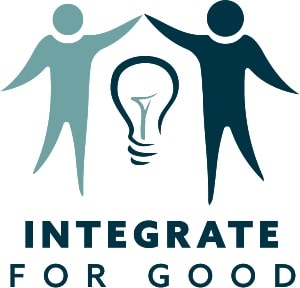
Bev Weinberg, Founder and Executive Director of Integrate for Good, spoke with MONTCO Today about her life growing up in a tight-knit neighborhood in Montgomery County and how an early experience in elementary school shaped the work she does today. After being kept on the sidelines of gym class because of an orthopedic disability, Weinberg envisioned a more inclusive community, which eventually led to her founding Integrate for Good to support people with disabilities.
Weinberg also described how, along the way, she went from an undergraduate degree in city planning to working as an occupational therapist in schools for decades. Finally, she shared how Integrate for Good adapted during the pandemic and is continuing to expand its offerings.
Where were you born and where did you grow up?
I was born the oldest of two girls at North Penn Hospital, grew up in Kulpsville and Lansdale, and graduated from North Penn High School.
What did your parents do?
For most of his career, my dad worked as a clinical auditor for McNeil Pharmaceutical in Springhouse. My mom worked at Batesville Casket Company in Hatfield. She applied for the job of office manager thinking it was a gasket company. She ended up working at Batesville for over 30 years.
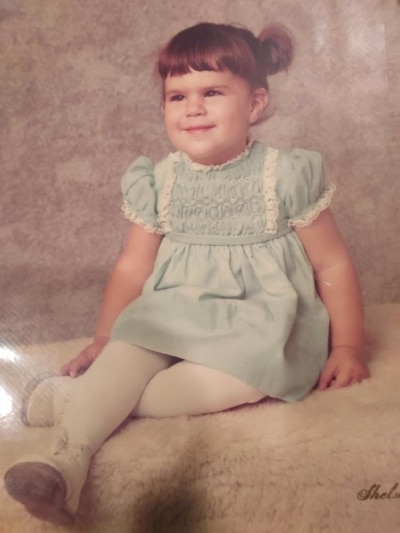
What memories stay with you from growing up in the Landsdale area?
I grew up on a little cul-de-sac street of twin houses. I remember playing outside – there were a lot of kids in the neighborhood – and I remember all of the families knew each other, so any of the parents could keep an eye on us. It was a very tight-knit community.
One of the earliest memories I have actually led to what I’m doing, believe it or not. In elementary school, I remember hating Mondays. I loved school, but I remember hating Monday because it was gym day, and I had to wear metal braces on my legs.
I remember the gym teacher would pick two captains, and I was always the last one standing. Nobody wanted me on their team, because I couldn’t run fast. Usually, the gym teacher would say, “You know, this game is probably not safe for you. Why don’t you sit and watch?”
I vividly remember being that six-year-old little girl sitting alone on the stage in the gym, knowing I could play, but being separated out and marginalized from the other kids. I remember feeling two different ways: invisible because they were all playing and having fun and I was left out, but also, I felt like there was a neon sign shining down on those metal braces.
When I think back, that experience was a blessing, because it gave me the empathy and the inspiration to say, we can build an inclusive community by doing really simple things better.
Did you ever play any sports?
I didn’t – and it wasn’t because I couldn’t. That little girl on the stage accepted that other people had the power to sideline me, and early experiences shape us, both positively and negatively. Even after the braces came off, I spent the rest of my school career avoiding sports and missing out because I lacked the confidence to try.
But when I was in my 40s, I got a postcard in the mail looking for people to train for a marathon to raise money for the Leukemia and Lymphoma Society. I almost threw it right into the recycle bin, but I decided to go to the meeting. It was at REI and an 87-year-old man stood up to speak. He had two knee replacements, two hip replacements, and a triple bypass. He shared, “I’ve done a marathon in every state now, and I’m still running!” I thought, if this guy is doing this, I could too. I did a half marathon and a marathon a year later. For the first time, I felt what it was like to be part of a team.
In high school, I ended up being in the band because I could sit and play my flute. Sports in high school never happened. But I look back and wonder what I missed by accepting other people saying, “Oh, that’s not for you.”
At what age did you begin to take responsibility for your mindset of always being sidelined?
When I was 15, I got a scholarship to be an exchange student in Brazil for one summer. The experience opened my eyes to different cultures and different ways of doing things. I was shocked that my parents agreed to put me on a plane to Brazil to live with a family they’d never met. I always knew my parents believed in me, but that summer gave me the confidence and independence I lacked.
Did you have any jobs in high school?
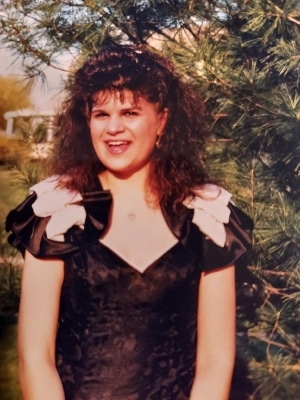
I did! I wanted to go to France, so my parents encouraged me to work and save for the trip. I got my working papers when I was 14, and the only place that would hire me at 14 was the janitorial company of Macy’s in Montgomery Mall. So pushed the trash cart, and I cleaned the windows and the bathrooms.
I actually worked many jobs in Montgomery Mall. I worked for J. Reckner and Associates doing market research. I was the lady with the clipboard asking people questions as they shopped. I learned then how companies value different perspectives and how it’s so important to get that information from different people. I also learned what it means to be constantly rejected because nobody wants to talk to the person with the clipboard.
I also worked at CVS in that mall and at Friendly’s, waitressing. I think every young person should have a job doing janitorial work or food service like I did because you will always appreciate the work that all people do in your community.
What music did you listen to growing up?
Music was a huge part of our family. My grandfather, my mom’s dad, Ben, managed a store called Wee Three Records. We would go visit Pop-Pop Ben at the mall and he would give us vinyl records and cassette tapes of all different music – everything from country to Motown, you name it. My aunt worked in the box office at Valley Forge Music Fair, and she would get us tickets for everything from Bob Marley to Air Supply to the Oak Ridge Boys. We just loved all kinds of music.
I also played flute at North Penn. I wanted to be in jazz band more than anything, and the jazz band director said, “We don’t need a flute in jazz band.” I said, “Well, what do you need?” He said, “We need a tenor sax player.” So, I learned tenor sax and played in the jazz band. I loved it!
To this day, music is so important to me. I have two teenage daughters and we connect a lot around music. I felt very fortunate to always be exposed to a wide variety of music, even as a little girl.
You were a good student – where did you go to college?
My parents told me I needed to apply to at least one state school. I was thinking about Brown and other places that were probably a bit out of our reach. They convinced me to look at Pitt. As we were driving to Pittsburgh and going through the tunnel and the whole city revealed itself at those three rivers, I just felt something special. I had found my second home.
I love Pittsburgh so much that my undergrad degree is actually in city planning. I might have stayed in Pittsburgh, but at the end of my undergrad time, I learned about the field that I actually ended up in, which is occupational therapy. I came back home and did my Master’s and clinical doctoral work at Temple.
From city planner to occupational therapy – it’s not easy to see the connection. How did you make that leap?
When I was 18 and a Freshman at Pitt, I didn’t know what city planning was. I had two professors who were so passionate about city planning, and I was drawn to their energy and passion. It sucked me in, but as it turned out, it wasn’t the field for me.
I had always volunteered with people with disabilities, and my parents did, too. On a weekend, it wasn’t unusual for us to be visiting a group home in Lansdale and taking a group of adults with intellectual disabilities out for a hike or out for lunch. I also volunteered to coach Special Olympics and prepare students with disabilities for their bar and bat mitzvahs at local synagogues. My mom’s friend, who worked at Friends Hospital, said, “You know, you could get paid to do what you’re volunteering to do. It’s something called occupational therapy.” She offered to let me shadow some of her occupational therapists to learn about it. I did, and I realized, “Oh, this is what I’m supposed to be doing!” I did my Master’s work at Temple and spent the next 27 years in Montgomery County School Districts as a school-based occupational therapist.
Who were the people who saw promise in you and opened doors for you?
Certainly, my parents – they always had my back.
Aside from them, I want to shout out Rob Reid, who recently retired from Access Services, a nonprofit organization based in Fort Washington. I was working in Cheltenham School District at the time and knew I had a vision for this work that was bigger than any one school district. The vision for Integrate for Good had been in my head for a while, and I dreamed of making it a reality. I found a small federal grant opportunity that had my name written all over it. I knew that no one was going to fund a girl with a dream, so I had to connect myself with a 501(c)(3) nonprofit organization.
Access Services was an organization I had worked with early on. I looked them up and saw that Rob, my supervisor from 25 years ago, was still there. I said, “I don’t know if you remember me, but I’d love to talk! Rob generously welcomed me back and embraced my idea to bring innovation and opportunity to students with disabilities who too often graduate to their parents’ sofas, video games in their basements, and waiting lists for services.
I launched Integrate for Good at Access, and that’s where the idea was able to incubate. When the grant call came in, I was driving through Glenside. I had to pull over because I burst into tears! Integrate for Good launched that day! I told Rob, “This never would have happened if you didn’t believe in me.”
Looking forward, Bev, what are you focused on at Integrate for Good and what are your priorities?
When Integrate for Good started, we were 100% community-based, and we still don’t have a brick-and-mortar building. You will find us throughout Montgomery and Chester Counties, leading inclusive volunteer events at senior centers, colleges and universities, the Elmwood Park Zoo, libraries, The Perkiomen Valley Brewery, Jake’s Baristas in Norristown, Camphill Soltane, and more.
When Covid hit, everything we worked so hard to build was canceled within 24 hours.
We were able to convert everything to a virtual format within just a week because we knew how important it was to keep people with disabilities connected. We currently operate a hybrid model because so many of the things we learned from the pandemic are things we want to continue. We realized we were reaching a whole new audience, and we were able to alleviate the transportation barrier for some people.
We’re planning our second annual Community Heroes Gala at Talamore Country Club in Ambler on November 3, 2022. Our Night at The Races features amazing raffle prizes, delicious food, the opportunity to network with a diverse crowd, exciting virtual horse races, a powerful keynote and the presentation of our Integrate for Good Community Hero Award. We have big announcements coming soon! Our inaugural event last year was outstanding, and we expect an even better event this year!
We don’t charge families and students with disabilities to be part of our work, because we know the stress they have with extra therapies and medical copays. Often, parents aren’t able to work full-time with the care their children need. Unlike other disability organizations, we don’t bill the government for our programs. We fundraise every dollar we use for our programming. We are able to replace loneliness with belonging and isolation with opportunity because of the generosity of individual and corporate gifts.
Are there any new services or new initiatives you’re rolling out this year?
We’ve expanded our Empowerment Lab, which is a 12-week program we run with school districts in Montgomery County. We enroll six students at a time, so it’s very intensive and customized.
Through this three-month program, students explore and identify their talents, interests, environmental work preferences, and passions, cumulating in the creation of a digital portfolio highlighting the ability in their disability. More dynamic than a traditional paper resume, Integrate for Good’s digital portfolios make ability come alive through photography and videography using our signature strengths-based approach.
The students receive business cards with a QR code linking to their portfolio, so a potential employer can see what that person would add to the company and our Montgomery County economy. We know that people are looking to fill positions, and people who are neurodiverse are looking for work, and we want to bridge that gap.
Our Opening Doors on Campus program is expanding. We partner with Temple, Ursinus, West Chester, Cabrini, and Gwynedd Mercy University, where we are leading inclusive volunteering led by people with disabilities on those campuses.
We have a leadership incubator program we are looking to expand. We empower young people with disabilities to explore entrepreneurship and leadership development. One of our emerging leaders, Varun, is currently working with PECO and another one of our leaders, Heather, is hosting our Facebook Live show where she interviews local business leaders, professors, and community members. She shows people in the ability in Down syndrome twice a week live on our show.
Our fourth initiative is corporate engagement. Research shows that employees believe volunteerism boosts workplace morale better than a company-sponsored happy hour! In an economy with significant staff shortages, engaging and retaining good workers is essential. Our neurodiverse Integrate for Good leaders bring innovative team-building volunteer activities to corporate settings. We make corporate values come alive with our exciting and meaningful projects. Companies engage their employees. People with disabilities lead. It’s a win-win for all. We are always looking for more company partners.
Those are our four programs. We’d to expand them all. We’re hoping that support for our Gala in November allows us to serve some of the students on our waiting lists. Now that more of us understand what it means to be lonely, to struggle with employment, and to be socially isolated, we’ve seen a lot more awareness of why our work matters.
What do you do with all that free time that you have, Bev?
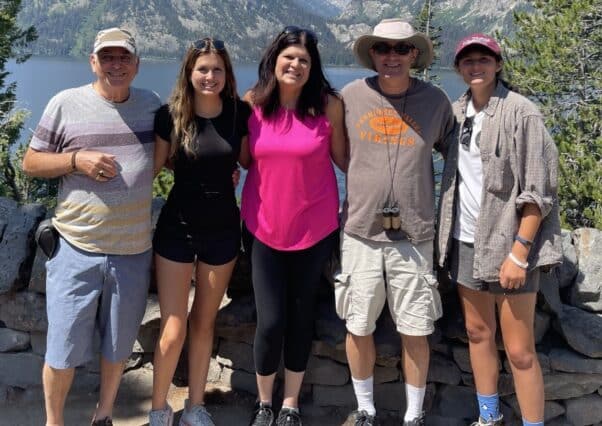
I love to dance. I haven’t done it since COVID, but my favorite kind of music is zydeco, which is from southeast Louisiana – the washboard, the spoons. So sometimes I’ll go to Conshohocken – I love seeing live bands. I’m looking forward to getting back to that once we get our COVID numbers down.
Do you read much?
I love to read. I read a lot of leadership books. One book I’m reading now that I love is called “To Be Determined: Leading with Clarity and Confidence in Uncertain Times” by Brenda Reynolds. She’s a great local leader and consultant.
In these turbulent times, what keeps you hopeful, Bev?
A good example happened this past Monday night. We were so excited to have the opportunity to apply for pandemic recovery funds from Montgomery County. But they allocated the money to other worthy projects and we were not selected. That award would have funded our Empowerment Lab across the County for four years, and it would have allowed us to fund school districts that can’t afford to pay for it.
I was devastated when I heard the decision. Heather, our Facebook Live host, kept texting me saying, “I have a good news for you.” I didn’t want to talk right then, but she called, and I answered. She said, “I got to be on TV talking about how you gave me my first paycheck ever.”
Heather is 46 years old. She has had jobs that other people would be paid to have, but she was expected to volunteer, only because she lives with Down syndrome. We were thrilled to give Heather her first paycheck. We just wish it happened sooner. That’s what keeps me hopeful. We are changing one life at a time.
Finally, Bev, what is the best piece of advice you ever got?
I’m going to say – even though I’ve obviously never talked to this man – Henry David Thoreau. My favorite quote ever is from him. He said, “If you build castles in the air, your work need not be lost. That is where they should be. Now, put the foundations under them.”
I’ve always been a dreamer, and now I’m a nonprofit dreamer with dreams that are way beyond my budget, but that’s okay! I think we have to have the highest expectations for what we can do for inclusion in and around Montgomery County.
We invite the community to dream with us! We encourage people to visit our website designed by our talented Director of Technology, Nick, who lives with autism, learning disabilities, and muscular dystrophy. As Thoreau said, we’re ready to build the foundation under our vision of a more inclusive Montgomery County. Together, we can make it happen.
Connect With Your Community
Subscribe to stay informed!
"*" indicates required fields










































![95000-1023_ACJ_BannerAd[1]](https://vista.today/wp-content/uploads/2023/03/95000-1023_ACJ_BannerAd1.jpg)


